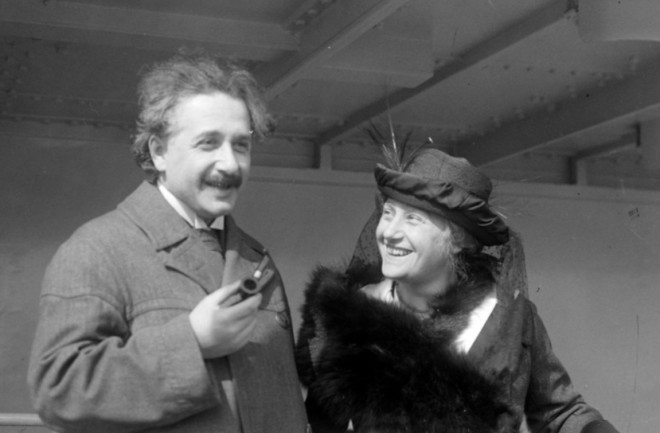One hundred years ago, Albert Einstein first stepped foot in the United States. The journey served as a fundraising tour for a new Hebrew University in Jerusalem and an opportunity to lecture at some of America’s most prestigious academic institutions. It was also the moment Einstein established himself as a bona fide "celebrity scientist” in the English-speaking world — until a disastrous interview nearly unraveled the whole thing.
On April 3, 1921, the physicist arrived in New York Harbor to handkerchief-waving fans and throngs of photographers. He’d shot to fame a year and a half before when he demonstrated that the sun does in fact deflect starlight and bend light, verifying one of the classic tests of his Theory of Relativity and sending shockwaves through the scientific community. Einstein was now the most famous scientist in the world, both for his research and his personal quirks.
“They’re focusing on his wild and wooly hair and that he plays the violin and has the pipe, and those personable touches that get lots of people interested,” says Trevor Lipscombe, director of Catholic University of America Press and author of Albert Einstein: A Biography.
Chaim Weizmann, president of the World Zionist Organization, had organized the trip and persuaded the celebrated Jewish scientist to help draw attention (and donations) to establishing a Hebrew University in Jerusalem.
Though not a practicing Jew and a self-identified non-Zionist, the cause of the University mattered to Einstein because he felt concerned by growing anti-Semitism and the limits on Jewish people’s access to universities throughout Europe. In fact, it was an important enough trip that he opted out of attending the third Solvay Conference on Physics, a major gathering of European scientists.

